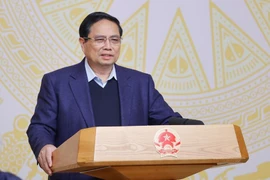London (VNA) – Assoc. Prof. Dr. Nguyen Dang Bang at the University of Cambridge's Judge Business School has pointed out Vietnam’s key advantages in realising the Politburo’s Resolution 57, which targets breakthroughs in sci-tech, innovation, and national digital transformation.
Talking with the Vietnam News Agency (VNA)'s resident reporter in London, Bang highlighted Vietnam’s advantages such as a young and tech-savvy population, steady economic growth, deep integration into global supply chains across multiple industries, and modern infrastructure like large airports and seaports.
Unlike some countries with large manufacturing bases but still relying on outdated technologies, Vietnam could emerge as a hub for smart manufacturing, particularly in semiconductors, advanced chip production, and cutting-edge fields like quantum computing, he said.
To fully capitalise on these advantages, Bang noted that institutional reform must be a top priority. By turning institutional frameworks into competitive edges, Vietnam can empower scientists with trust, opportunities and encouragement, allowing them to focus on experimentation rather than explaining research projects in early stages, he said, suggesting the Vietnamese Government issue clear policies and detailed action plans to turn scientific goals into reality.
Given limited resources, he advised the Vietnamese Government to bet big on 3-4 high-impact areas with clear timelines, solid foundations, and real payoff potential over the next 10-15 years. Less critical fields could be led by private enterprises and foreign investors, with the State playing a guiding and regulatory role to keep the ecosystem humming.
Drawing on nearly 20 years of teaching and research experience across Hong Kong, France, the US and UK, Bang stressed the need to build a strong ecosystem in universities, saying that it must undergo a thorough evaluation and rapid overhaul, open them up and connect with top global universities and leading experts in science, engineering, and advanced technologies. This would give students’ unfiltered access to the cutting-edge ideas.
He also advocated for early science education in primary and secondary schools, using hands-on activities to spark curiosity and engagement.
Bang suggested that the Vietnamese Government should make it easier for both multinational corporations and domestic companies to establish research facilities in Vietnam, including tax incentives for research and development (R&D) in priority sectors and a dedicated task force to attract R&D investments from the world’s top 100 companies.
Describing Vietnam as one of the few countries with a global network of scientific experts, he urged the Vietnamese Government to engage them in teaching, research, and advisory roles for both state and business entities./.
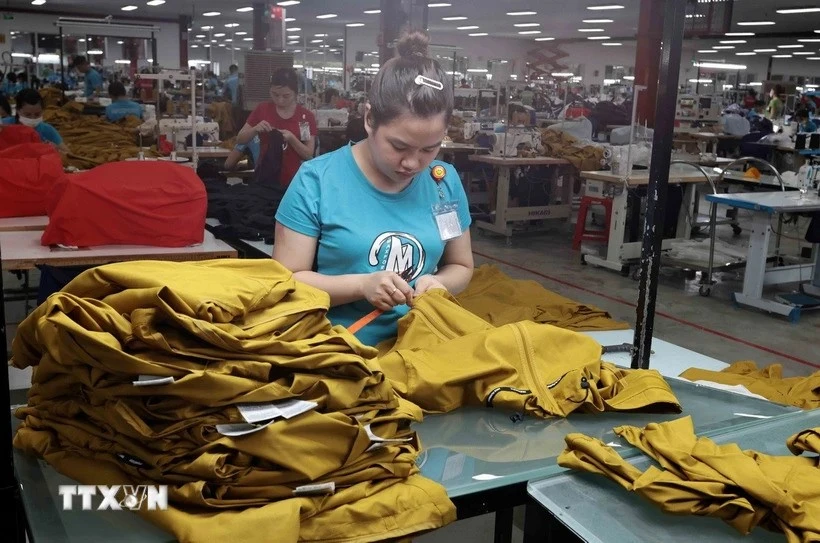
See more
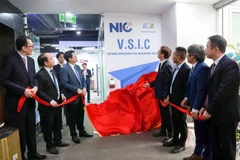
Vietnam Semiconductor Innovation Centre boots up in Hanoi
The launch of the VSIC shows a key commitment from FPT Corporation, NIC, and their partners to establish a sustainable semiconductor ecosystem in Vietnam, positioning the country as an attractive destination in this strategic industry.

Resolution 57 to help Vietnam develop sustainably: Vietnamese intellectual in Japan
The Politburo’s Resolution 57-NQ/TW holds strategic significance as Vietnam needs to innovate its growth model, and improve labour productivity and competitiveness. It identifies science, technology, innovation and national digital transformation as the main driving force for socio-economic development, helping Vietnam escape the growth model based on cheap labour and resources, said Chairman of the Association of Vietnamese Intellectuals in Japan Dr. Le Duc Anh.
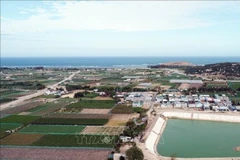
Vietnam ensures int’l commitments in nuclear power development
Vietnam, like other first-time nuclear power developers, needs to fully participate in international treaties on nuclear development, experts said.
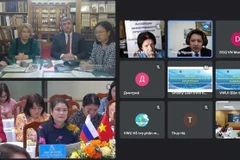
Symposium discusses ways to encourage women's engagement in science-technology
Tuyen stressed that the VWU has been carrying out practical activities to encourage women’s engagement in science and technology development, including promoting the establishment of the Vietnam Association for Intellectual Women, issuing a resolution on supporting women’s international integration by 2030, and launching initiatives like the Kovalevskaia Awards to encourage scientific research, innovation, startup and participation in digital economy and society among women.
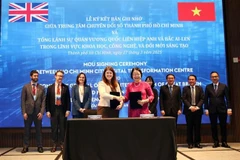
HCM City, UK strengthen partnership in digital transformation, innovation
Under the MoU, both sides will promote cooperation in research and innovation among policymakers, government agencies, research institutions, universities, and businesses to support digital transformation and drive technological advancements in the southern city.

Pilot programme allows SpaceX to provide satellite Internet services in Vietnam
This pilot programme will not impose any restrictions on foreign investors regarding ownership percentages or capital contributions, according to recently-signed Decision No. 659/QD-TTg.
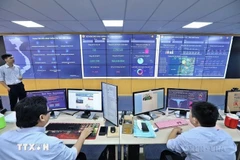
Politburo's science-tech resolution gives push to socio-economic development
Vietnam has set ambitious milestones, aiming to rank among the top three ASEAN countries in artificial intelligence (AI) research and development, digital competitiveness, and the e-government development index by 2030.
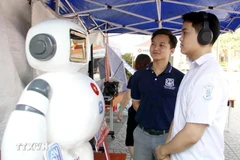
Russian expert hails Vietnam’s sci-tech development policy
Vietnam has chosen a right direction by setting the goal of making science – technology development, and innovation main driving forces for socio-economic development, said Dr. Grigory Trubnikov, Academician of the Russian Academy of Science and Director of the the Joint Institute for Nuclear Research (JINR) in Dubna (commonly known as Dubna Institute).

Vietnam harnesses AI to transform public services
The Government is accelerating AI application to reduce the paper workload and improve operation efficacy.

PM calls for nationwide digital literacy to empower citizens
PM Pham Minh Chinh tasked the Ministry of Science and Technology and the Ministry of Education and Training with developing a digital competency framework tailored to different groups, ensuring that civil servants, students, and workers alike have the necessary digital skills to work, learn, and engage safely and effectively in an increasingly digital world.
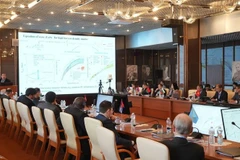
Vietnam, Russia hold promising scientific collaboration
Since 1982, when the Vietnam Academy of Science and Technology (VAST) became the official representative of Vietnam at JINR, the training of scientific personnel has been systematised, laying the foundation for the development of a high-quality scientific and technological workforce, playing a significant role in the country's renewal process.
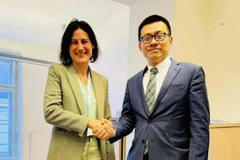
Vietnam, Austria explore cooperation in emerging technologies
Vietnam is highly interested in and wishes to strengthen partnerships with Austrian hi-tech companies, helping it make breakthrough in science, technology, and digital transformation, said Ambassador Vu Le Thai Hoang.
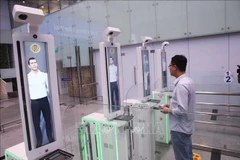
Preparations underway for biometrics, VNeID application at six airports
The biometric system is set for deployment at Tan Son Nhat between April and June, while at Noi Bai between March and September.
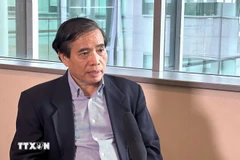
Expert taps Singapore’s model for Vietnam’s digital revolution
An expert from Singapore’s Lee Kuan Yew School of Public Policy has shared some of the city-state's experiences in how to promote science, technology, innovation, and digital transformation for national development.

Vietnamese-Australian engineer takes agriculture sky high with drone technology
The aeronautical engineer described the Politburo’s resolution on breakthroughs in science, technology, innovation, and national digital transformation as a bright spot, removing obstacles for both domestic and foreign technological talent to make contributions to the homeland.
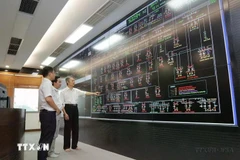
Resolution 57 shapes way for Vietnam to become science-technology leader
The ambitious targets outlined in the resolution are based on both Vietnam’s current capabilities and its future development potential. However, achieving these goals requires breakthrough approaches to implementing science, technology, innovation, and digital transformation.
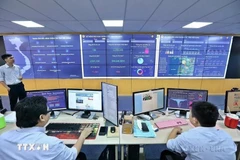
Expert sees resolution on national digital transformation as strategic move
The Politburo's Resolution 57-NQ/TW is will remove legal barriers to economic growth through science, technology, and digital transformation amidst the Fourth Industrial Revolution and the global digital economy.

Scientists in UK lauds Vietnam’s resolution on science, technology
Evaluating the significance of Resolution 57 in the current development phase, the scientists agreed that investing in science and technology is the right direction to create momentum for the country’s breakthrough development.

Report flags gaps in Vietnam’s AI push in public sector
A report funded by UNDP and conducted by the Institute for Policy Studies and Media Development (IPS) found that 87% of AI-integrated public sector projects remain dormant, while 70% of surveyed businesses and organisations rated their AI efforts as minimally effective.
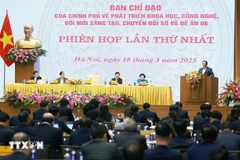
Prime Minister pushes for streamlined, data-driven government
Project 06 has shown tangible results, he said, highlighting the country has completed the issuance of 100% of chip-based citizen ID cards, activated over 61 million electronic identity accounts, and provided 40 utilities on the VNeID application. Online public services have been perfected, with 58 out of 76 essential online public services now available.

